Better Luck Next Year: Detroit Pistons edition
As NBA teams are officially eliminated from title contention, theScore NBA freelance writer Andrew Unterberger takes a look back at the highs and lows of their season, along with the biggest questions ahead of 2018-19. The 12th edition focuses on the Detroit Pistons.
The Good
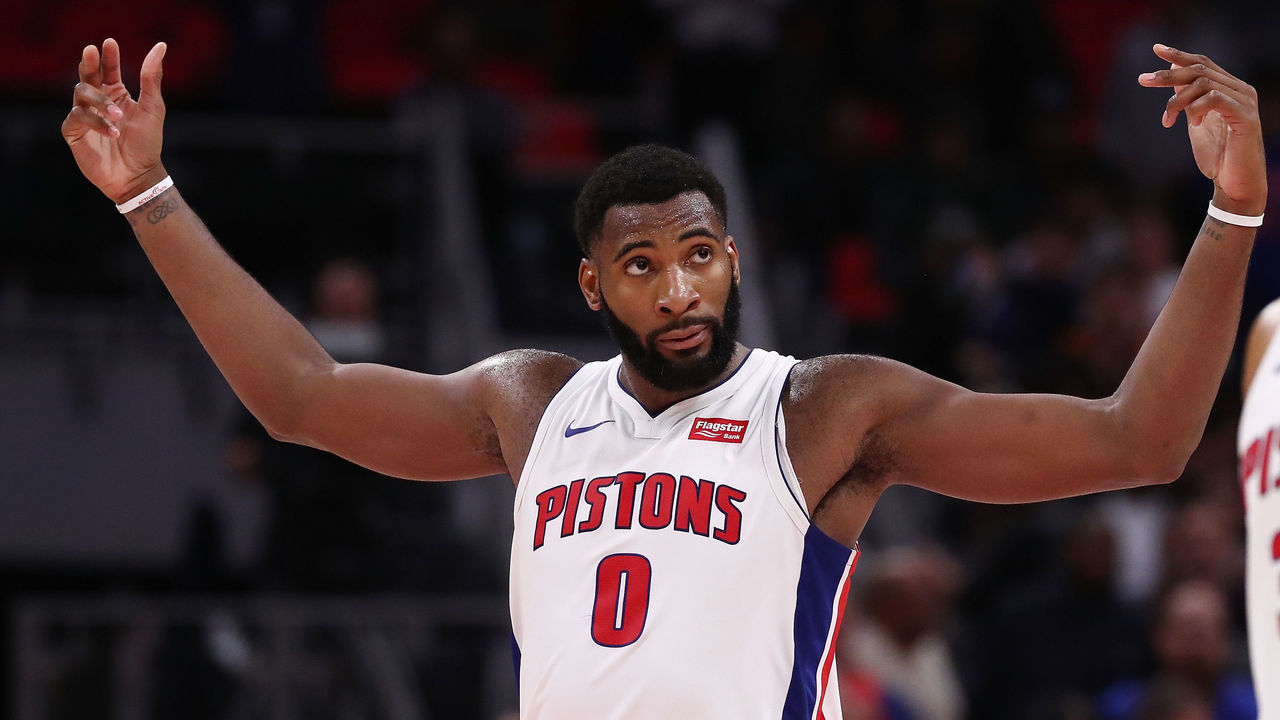
A 10-3 start. Even if you remember the Pistons' good start to the season, you'd be forgiven for forgetting it was this good. Indeed, only the Celtics - who won 16 games in a row after losing their first two of the season - put a better foot forward in the East. Detroit not only won 10 of its first 13 games, but racked up wins over the Timberwolves, the Pacers, and even the Warriors (in Oakland), looking like one of the breakout teams of 2017-18. Then injuries and regression hit. A month later, the team was already struggling to stay over .500, and the Pistons all but fell out of the playoff race by the end of January.
Andre Drummond's offensive diversification. Going into this season, few NBA All-Stars seemed as much like known quantities as Andre Drummond - a pure center, guaranteed to finish near the top of league in blocks and boards per game, but a black hole on offense and an end-of-game liability from the free-throw line. This year, though, his offensive efficiency spiked seemingly out of nowhere. His assists nearly tripled to three a game, and his free-throw percentage skyrocketed to over 60 percent - downright Curry-esque compared to the sub-40-percent rates he'd posted the two years prior. Drummond's career year opened up the Pistons' offense, and proved that in the NBA, it's never too late to turn your deficiencies into strengths.
Reggie Bullock's emergence. After four seasons of bouncing around the NBA - the Pistons were already his third team, and this was his third year there - former first-round pick Reggie Bullock finally proved himself an NBA player, starting 52 games for Detroit and posting career-best numbers in nearly every category. His shooting in particular came around, with a 49/45/80 slash line that cemented him as one of the more reliable young, role-playing wings in the league - the kind of player Stan Van Gundy desperately needs orbiting his point guard and center to play the style he found such success with in Orlando. The "D" part of his 3-and-D resume may be somewhat slower going - the Pistons were actually a couple ratings points worse on defense with him on the floor - but with a guaranteed contract that pays him peanuts through 2019, he seems like found money.
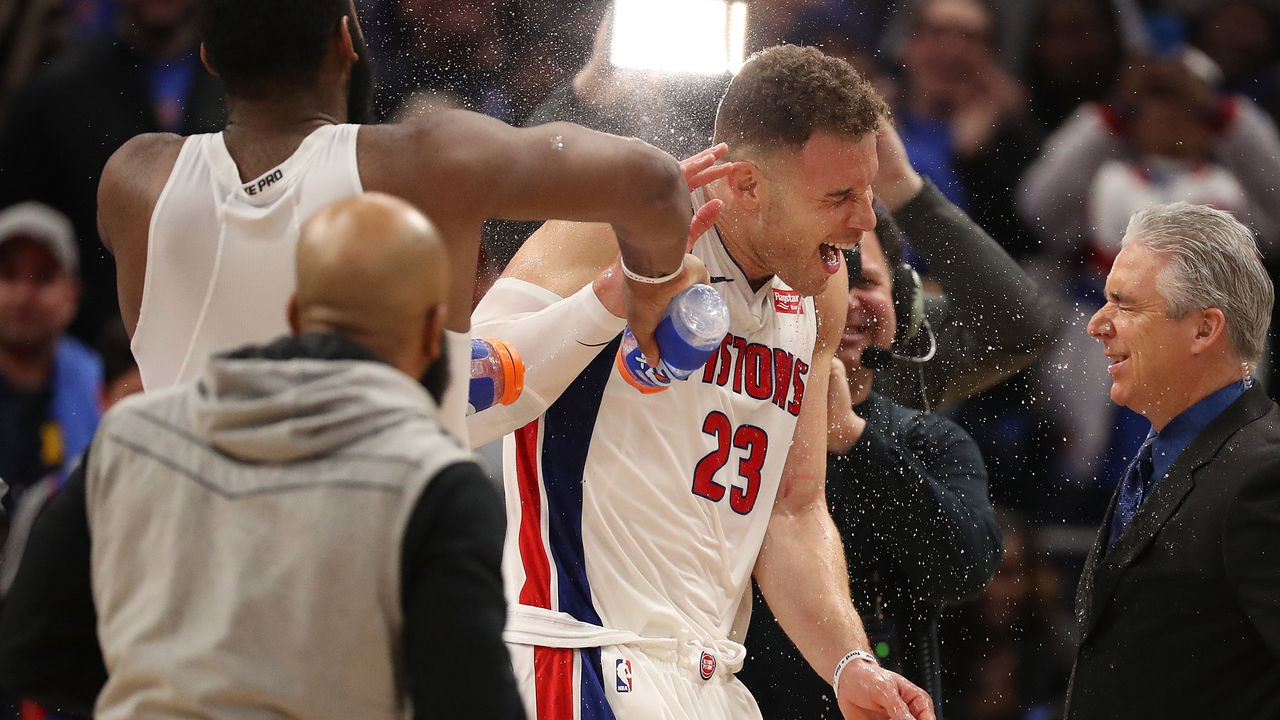
Blake Griffin's end of the season. The Blake Griffin era in Detroit had an erratic beginning, to put it generously. After winning their first four games with him, the Pistons went 3-13, officially falling out of the East playoff hunt. Griffin himself shot under 40 percent through his first 13 games in Motown, and his defensive effort made him a James Harden-esque Twitter punchline. But he turned things around - albeit a little too late for Detroit to do much with him - in his last 12 games, averaging 22-6-7 on 47 percent shooting (44 percent from deep) before going down with an ankle injury. It's unclear if he can be the consistent superstar the Pistons want and need him to be, but that was enough of a run to inspire at least a little hope - and now Griffin says a healthy Pistons team can "make a run in the East" next season.
Anthony Tolliver busts out of the box. In the midst of an NBA career that's lasted for 10 seasons and spanned nine (nine!) teams, Anthony Tolliver had one of this season's least likely breakouts, playing and scoring the most of his career on his highest true shooting percentage (a Pistons-best 66 percent) by far. He even earned a coveted spot on Zach Lowe's Luke Walton All-Stars squad, devoted to the veterans and role players making a surprisingly significant impact. Tolliver said his stint with the Sacramento Kings taught him that he needed to diversify his offensive game to avoid being pigeonholed, a lesson he took with him to Detroit: "I wasn't going back into the box."
The Bad
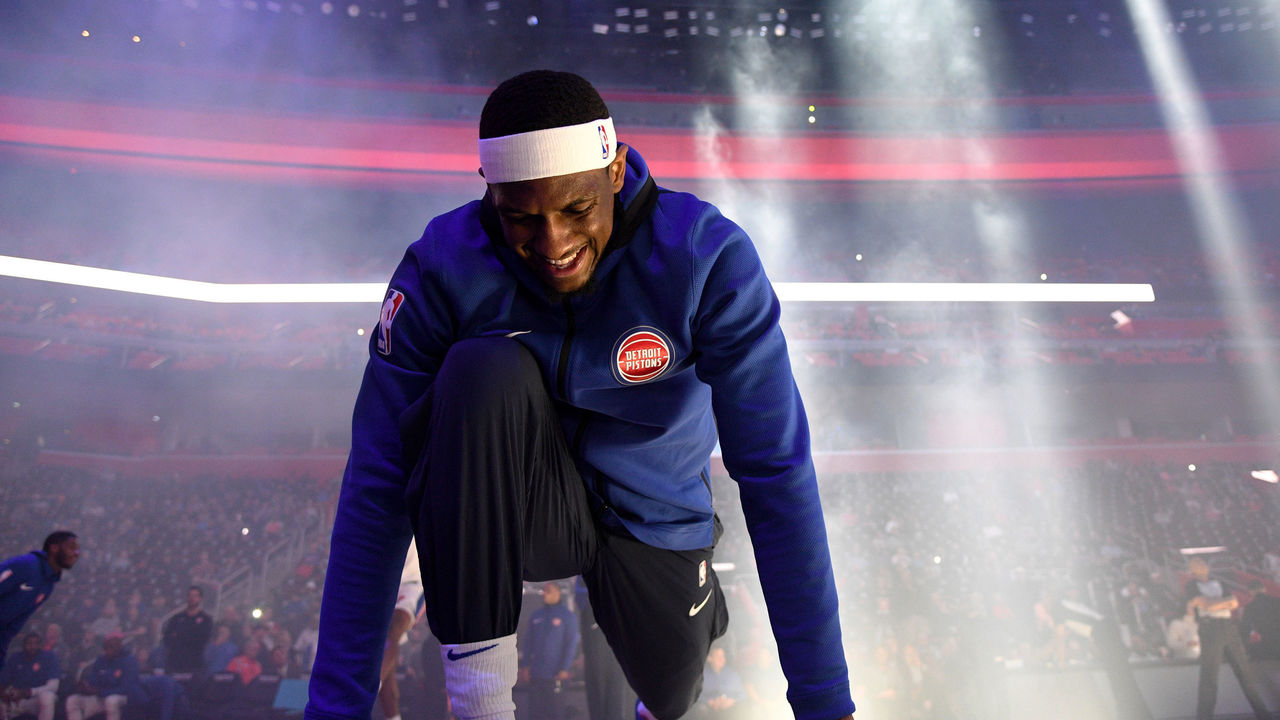
Attendance. The Pistons might not have felt they needed to make a major dice roll like the Griffin trade if they were confident about drawing a crowd at home. Despite opening a new arena in Detroit proper this season, the Pistons ranked 29th in home attendance percentage, with only the woeful Hawks keeping them out of the cellar. The bright red seats of Little Caesars Arena had the unfortunate tendency to pop as conspicuously empty on TV broadcasts, and the building also failed to endear itself to its home players, who groused that it felt more like a hockey venue and said the ice beneath the floorboards made physical activity more strenuous. (For what it's worth, the Pistons are 25-15 at home this year - better than several playoff teams.)
Langston Galloway's first year. The three-year, $20-million contract Langston Galloway signed in the offseason earned its share of raised eyebrows, since in his time with the Pelicans and Kings last season, Galloway put up replacement-level numbers. He maintained that type of production in his first year in the Motor City, averaging six points, two rebounds, and an assist on subpar 38 percent shooting (35 percent from deep). Galloway fell out of the rotation in the season's final months and has played in just three of Detroit's last 15 games. He looks more and more like dead money that Van Gundy didn't really need to take on in the first place.
Jon Leuer's lost season. Four Pistons players made eight figures this season, and while three of them are pretty obvious, the fourth might come as a surprise: power forward Jon Leuer. It doesn't help that Leuer played in just eight games, missing most of the season following ankle surgery in November. That created a hole in the lineup that the Pistons struggled to fill before the trade for Griffin and the emergence of Tolliver. Leuer is signed for two more years at nearly $10 million per, so he should get his chance to put his imprint on this roster - though with Detroit's cap commitments already approaching $120 million for next season, he's at risk of becoming expendable.
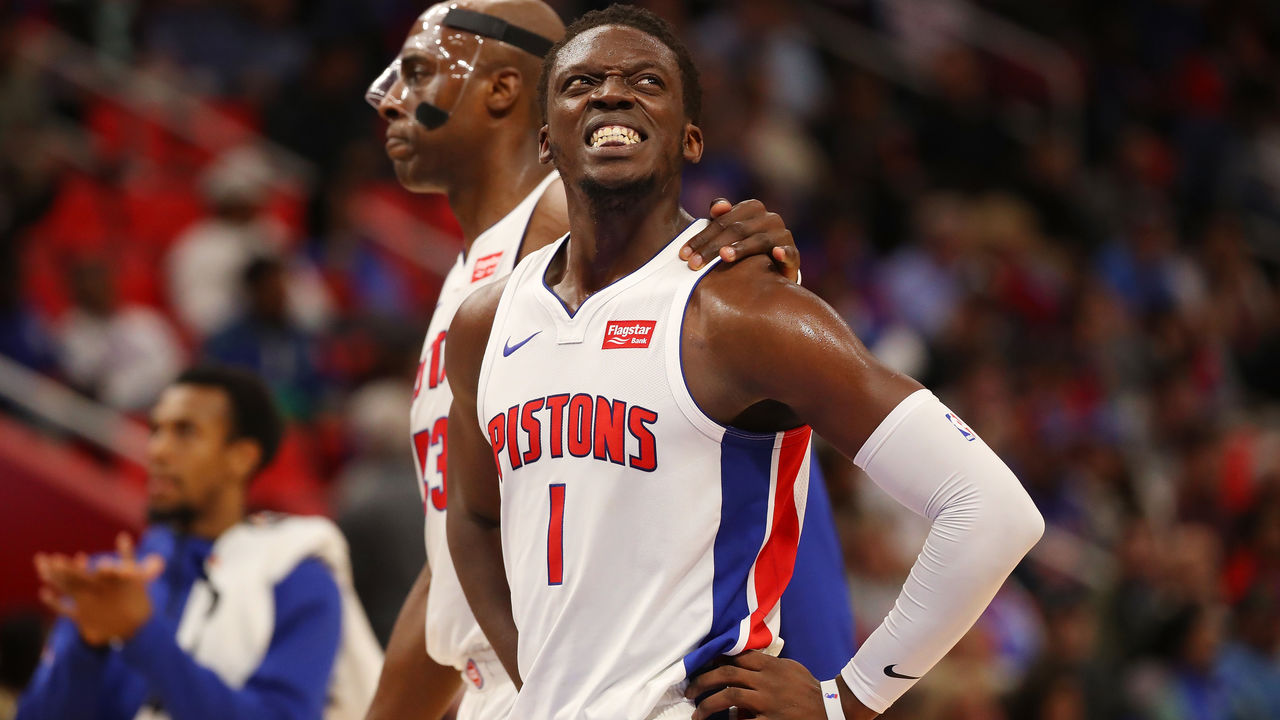
The Reggie Jackson injury. For the second straight season, Reggie Jackson missed significant time with injury - and this year, the Pistons were essentially unable to weather his absence. Detroit was a still-respectable 19-14 when the team confirmed Jackson would miss six weeks with an ankle sprain he suffered in December. By the time he came back - in late March, definitely more than six weeks later - the Pistons had fallen to 31-39 after going 12-25 without their starting point guard. Detroit is a different team with Jackson in the lineup, but it's increasingly questionable whether they'll ever have him at full strength for an entire season.
The Griffin contract. Whether or not the Pistons are a better team following the Griffin trade - in which they gave up two starters in Tobias Harris and Avery Bradley, as well as a first-round pick that appears likely to finish at No. 12 - remains arguable. What's not arguable is that Griffin's contract is among the most unwieldy in the NBA, with over $140 million owed to the power forward over the next four seasons. That's a ton of money for a player who isn't even guaranteed to make your team all that much better, and especially for one who hasn't played 65 games in a season since 2014-15. Griffin has his work cut out to prove not only that he can still be a superstar, but that he can avoid being an outright contractual albatross well into the next decade.
The Questions
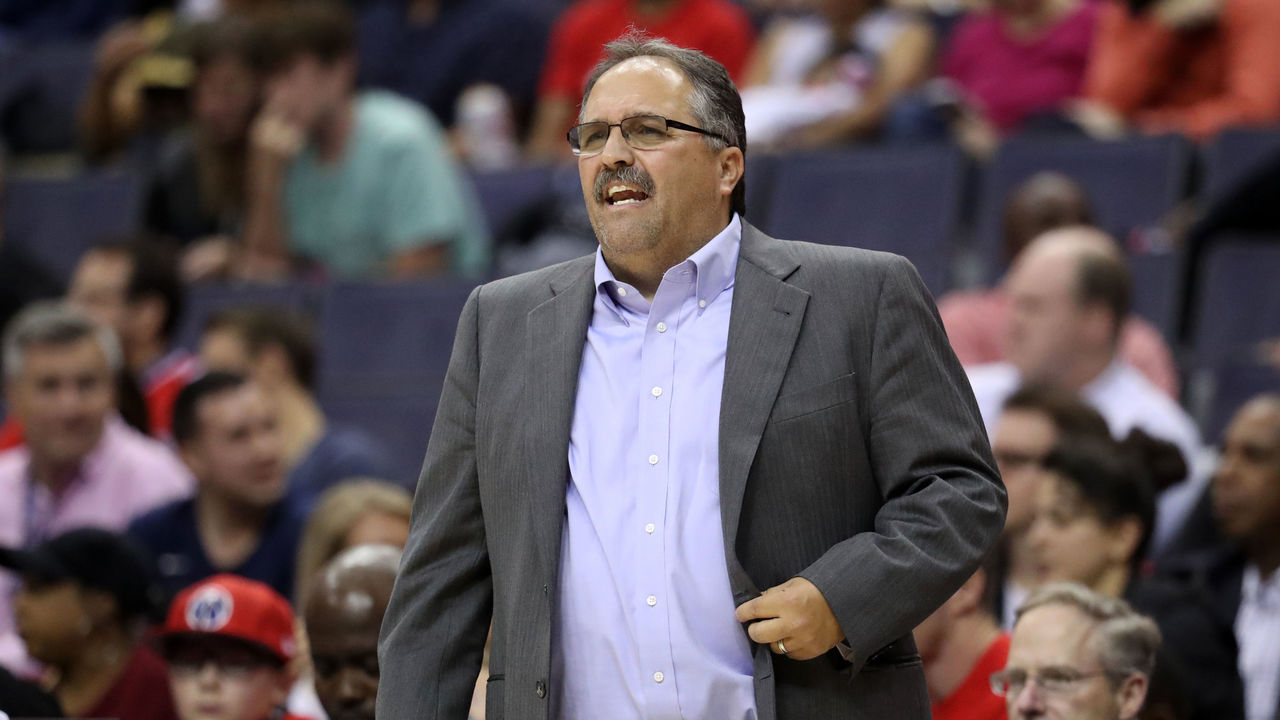
How much longer will Van Gundy have complete control? In 2014, SVG signed a five-year, $35-million deal with the Pistons to serve as both their head coach and president of basketball operations. But while the on-court product may have improved in his three years in charge (albeit not a ton, considering they haven't won a playoff game under his stewardship), their cap sheet looks increasingly messy, cluttered not only by huge contracts for Drummond, Jackson, and Griffin, but needless multi-year overpays to the likes of Leuer and Galloway. The Clippers found success this season by stripping coach Doc Rivers of his control over player personnel and letting him concentrate on coaching; a similar reassignment of responsibilities could be in store for Van Gundy.
Are Stanley Johnson and Reggie Bullock the long-term answers at the wing? Following the trade of Harris and Bradley to the Clippers, Detroit settled on first-rounders Johnson and Bullock as their starters at the two and three, with somewhat mixed results. Bullock has mostly been a rock, but three seasons since he was drafted in the top 10, Johnson's struggling to produce consistently as a starter, shooting just 38 percent and posting a ghastly offensive rating of 91. Whether Bullock can be this reliable long term, and whether Johnson will ever develop into a trustworthy two-way contributor, are questions of considerable import for Detroit, considering the money that's already locked up in the other three positions of the team's starting five.
Is there room for roster improvement this summer? As we've covered, the Pistons don't have much cap space available, and they gave up their first-round pick in the Griffin deal. That doesn't leave many avenues to add talent this summer, so they're likely stuck hoping for internal development, as in the case of shooting wing Luke Kennard. He showed some late promise after beginning his rookie season buried on the bench, but he's not guaranteed to become anything more than a decent role player. Beyond that, this Pistons roster is basically the roster they'll have next season - though given their record in trade and free agency, maybe it's for the best that they don't have much room to maneuver this summer.
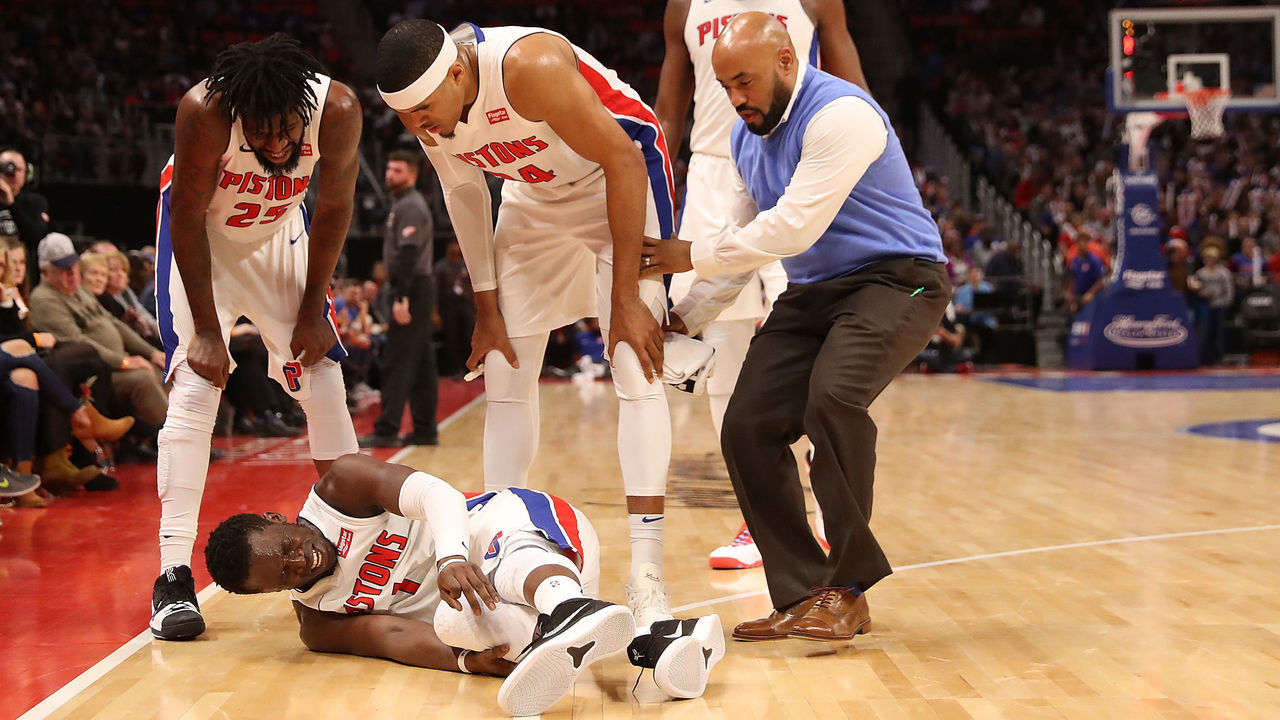
Can the team's core stay healthy? Four. That's how many games Drummond, Jackson, and Griffin played in together this season. They went 3-1, but for the Pistons to have any chance of making this thing work, their makeshift Big Three needs to be simultaneously active a whole lot more often.
What's their ceiling? Griffin says the team can make a run in the East if healthy next season, but what's really the best-case scenario? Who knows where LeBron is playing next season, but even if he goes West and renders the Cavaliers a non-factor, the Celtics, Sixers, and Bucks are all ascending; the Raptors likely aren't going anywhere; and the Pacers, Heat, and Wizards are all arguably in better long-term shape than the Pistons. Did Detroit go all-in on a team whose ceiling is about 47 wins and the 5-seed, or is there still elite potential if (for once) everything actually goes right for Stan Van's crew? If the Pistons don't find out next year, they might never get to know for sure.
(Photos courtesy: Getty Images)